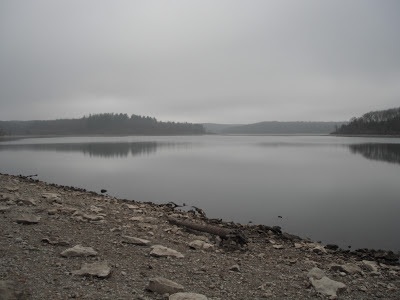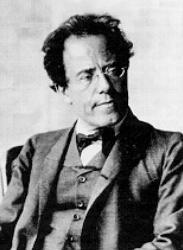“I wonder about the trees.
Why do we wish to bear
Forever the noise of these
More than another noise
 |
| Thousand Hills State Park, Kirksville, MO |
So close to our dwelling place?...
They are that that talks of going
But never gets away;
And that talks no less for knowing,
As it grows wiser and older,
That now it means to stay…
I shall set forth for somewhere,
I shall make the reckless choice
Some day when they are in voice
And tossing so as to scare
The white clouds over them on.
I shall have less to say,
But I shall be gone.”
—Robert Frost, “The Sound of the Trees”
The above poem is the bookend to the
collection originally published as Mountain
Interval, now known by its more marketable, recognizable title The Road Not Taken. In it, Robert Frost
ruminates on beginnings and endings (“there are no such things./ There are only
middles”) the challenge to have both a past and a future, the mixed results of
technological advances (telephone poles, forsooth!) and the mysteries of
nature, of things that both grow and stay the same.
Another crop of young people are
becoming freshmen at college now. As with last year’s crop, which I belonged
to, there is not so much a wide spread to how these people respond to this
event so much as enormous disparity between them. To those who speak of extreme
excitement, of straining at the limits of patience, of the certain excellence
of the coming months: I raise my glass in respect and appreciation, but I
really don’t understand how you feel this way. Not that I see anything wrong about
that reaction. But to those who react with more uncertain sentiments, with enormously
long Facebook statuses lavish with thanks for what they have been given with
perhaps a dubious word or two at the end about the promise of the future: to
you, a heartfelt and hearty “cheers.”
I sympathize who can see with some
clarity what they are leaving behind and who cannot see at all what they are
going to are faced with feelings they may have never felt before. With their
minds they understand what is necessary and good about going away to school;
with their hearts they ask what the sense is in leaving something good for
something else, and grapple with the stunning amount of unknowing that
confronts them. If their feelings are anything like mine were, of course, this
is only a single thread in the Gordian’s knot of things they think, feel, and
wish right now. They are making the sounds of Frost’s trees, of Frost himself, the songs of
staying and going that rise and fall and never resolve.
I merely hope that they do not split
this knot artificially, like me and others—that they do not respond to a
question by cutting it apart, but give themselves enough time to unwind each
strand. In that time of uncertainty last year, I demanded a quiet hope to act
as an immovable fact.
But seeing things like those long
thankful Facebook statuses is undeniably a good sign. They know that they ultimately
don’t know how to respond to the enormous questions that now beat at their
doors. But this causes them to speak and to write, and for that I am thankful.
One thing I’ve found is that there is no
truly helpful advice for college, and a lot that's just annoying ("Plastics!"); the only accurate thing you can say is that
there are no answers to those questions, and won’t be for a while. But unknowing
need not be fatal, nor any of the answers that may yet grow in its fertile
soil. And this growing takes more time than we are normally willing to allow.
But those are only the words of another
tree talking of staying and going. And words are always offered in abundance to
people about to leave for college, from aunts and uncles, teachers, friends—so I
do not pretend to be adding much of anything. We are always motivated to say
things to what they perceive to be younger versions of ourselves, the things we
think we needed to hear then, even if we are speaking the answers to questions
that belong to us and not to them.
No matter who hears, though, we must
keep talking. It's more for ourselves than for anyone else, but occasionally you hear
something that, while not really an answer, clarifies the challenge you face. There have been a couple old, gnarled trees, like Frost, that have been helpful to me in this way. Another
is the German poet Rainer Maria Rilke, who wrote to someone in which he
recognized his younger self:
“You are so young, so before all
beginning, and I want to beg you, as much as I can, dear sir, to be patient
toward all that is unsolved in your heart and to try to love the questions themselves like locked rooms
and like books that are written in a very foreign tongue. Do not now seek the
answers, which cannot be given you because you would not be able to live them.
And the point is, to live everything. Live
the questions now. Perhaps you will then gradually, without noticing it, live
along some distant day into the answer.”
—from Letters to a Young Poet
Anton Chekhov also deeply valued
unanswered questions, above all answers we may try to throw at them:
“You are right to demand that an author
take conscious stock of what he is doing, but you are confusing two concepts: answering the questions and formulating them correctly. Only the
latter is required of an author.”
—from a letter to Alexei Suvorin
For people who deal with change like I
do, no one can really tell you anything that will be what you are looking for.
But you can, at least, keep talking, and listening to yourself talk, which is
called writing.
“Why
do you talk so much,
Robert
Frost? One day
I
drove up to Ripton to ask,
I
stayed the whole day
And
never got the chance
to
put the question.”
—Galway
Kinnell, “For Robert Frost”








































